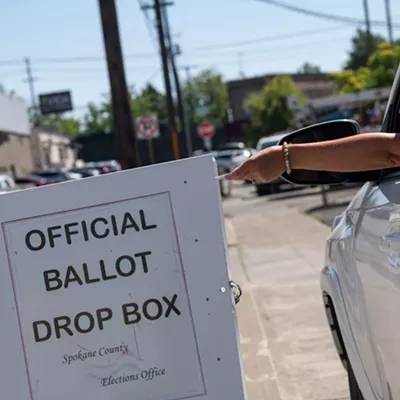The 10th anniversary of the Americans with Disabilities Act (ADA) was celebrated a little differently on July 26 in Idaho. This year, while many disabled people are thankful that they have protection under the act, the Idaho Attorney General's office observed the occasion in a way that has some disabled people worried. The AG's office claims that part of the ADA violates the 11th Amendment of the Constitution -- state sovereignty.
Idaho Attorney General Alan G. Lance is concerned that under the ADA states can be sued in federal court, which would be a violation of the state's sovereignty. Because the ADA allows a person to sue a state through federal court, this is unconstitutional, a Lance spokesperson says. The only item officials want changed in the ADA is the fact that an individual can sue the state in federal court for monetary relief.
Now a Supreme Court case is providing an open arena for states to voice opinions about this exact issue.
On June 20, Lance's office wrote a letter to the state of Hawaii asking it to add Idaho to the list supporting the University of Alabama vs. Garrett case. The case involves Patricia Garrett, an employee of the university for 17 years. After being treated for breast cancer in 1992, she says she was discriminated against at work and subsequently sued the state. Combined in Garrett's case was that of Milton Ash, an asthmatic who was allegedly discriminated at his Department of Youth Services job. A federal judge dismissed the cases due to the 11th Amendment. But the 11th U.S. Circuit Court of Appeals reinstated the case, ruling that states are not excused from lawsuits that invoke the ADA. Oral arguments will be heard in the U.S. Supreme Court on October 11.
Minnesota has filed a brief in support of the ADA and has the backing of Arizona, New York, Missouri and Washington state. The brief won't go to the Supreme Court until later this month, so other states could still join the bandwagon. Hawaii's brief has the support of Ohio, Tennessee, Arkansas, Idaho, Nevada and Nebraska and has already been filed.
"No one will lose any rights. No disabled people will lose any rights, " says Bob Cooper, spokesman for the attorney general's office. "It comes down to the question of which court you would go to.
"We're not here on a popularity or a non-popularity issue," Cooper continues. "This is plain, simple practice of law. The 11th Amendment says that a state may not be sued in federal court unless it consents. The remedies in the ADA allow a lawsuit to be filed in federal court without the state's consent. So the ADA contains language that on its face violates the constitution of the United States. And the state of Idaho's concern in this case is only with that provision of the ADA that violates the Constitution."
To some in the disabled community, however, this has a sobering affect on the future of the ADA.
"I've had a lot of discrimination because of my disability, so I don't buy the fact that I would have equal protection under Idaho law. And I don't think you can divorce the two things," says Kelly Buckland, executive director of the Idaho State Independent Living Council.
Thirty years to the day before the ADA anniversary, Buckland, then a 16-year-old, broke his neck in a diving accident in the Snake River in Idaho Falls. Since the accident, Buckland has been quadriplegic.
James Baugh, executive director of Comprehensive Advocacy, says the ADA is the only shield that fully guards the disabled community against discrimination. The Idaho Human Rights Act only protects employment and housing.
"Any state or municipal function -- police, fire, parks, state department of agriculture -- any of those entities. There are no state laws that protect them from discrimination on disability," he says.
The AG's office claims that this issue is nothing of a discriminatory sort -- this is purely about ridding federal involvement in a state manner.
"There was a legitimate state sovereignty issue," says Thorpe Orton, Lance's deputy chief of staff. "Unfortunately, that very important issue of state sovereignty had to come up in the Americans with Disability Act. However noble the cause may be, there are other ways to do it besides the 11th Amendment," Orton adds. "Sometimes there are other ways to skin a cat, you know."
This story first appeared in Boise Weekly.
















